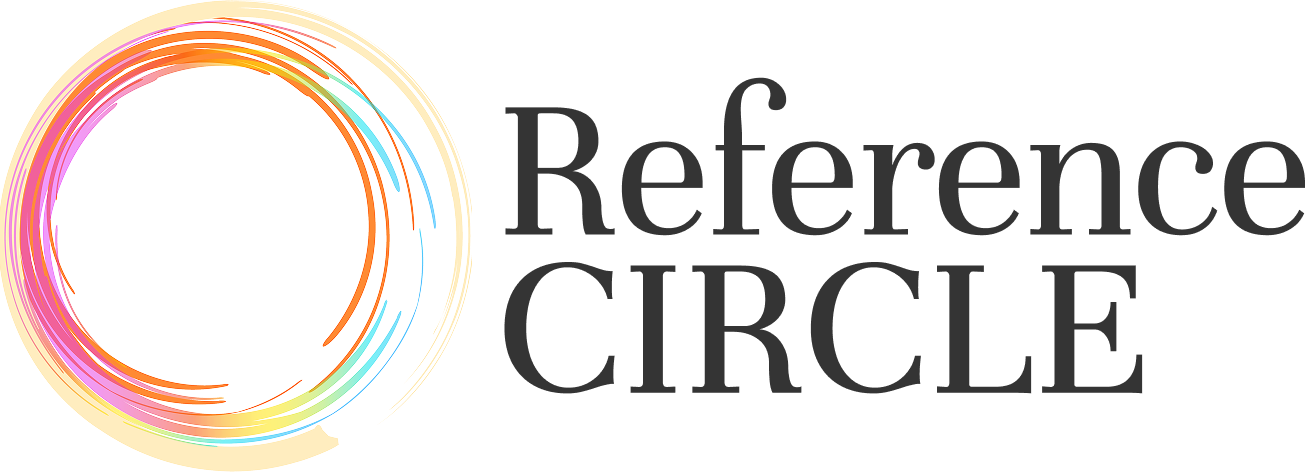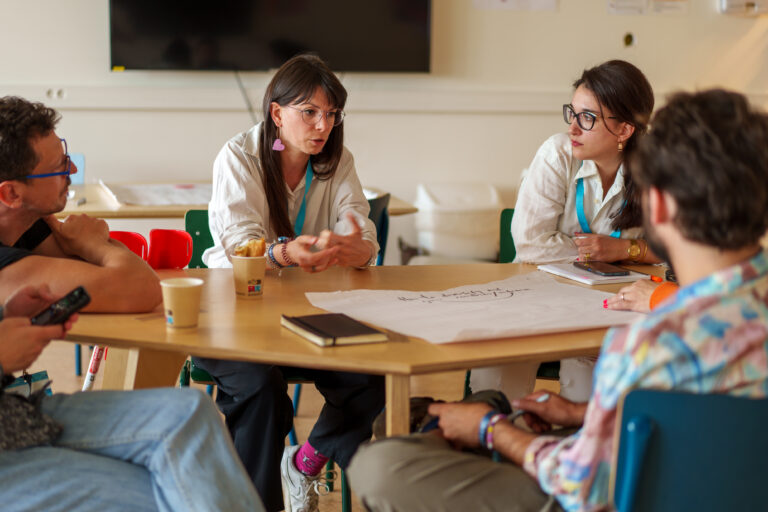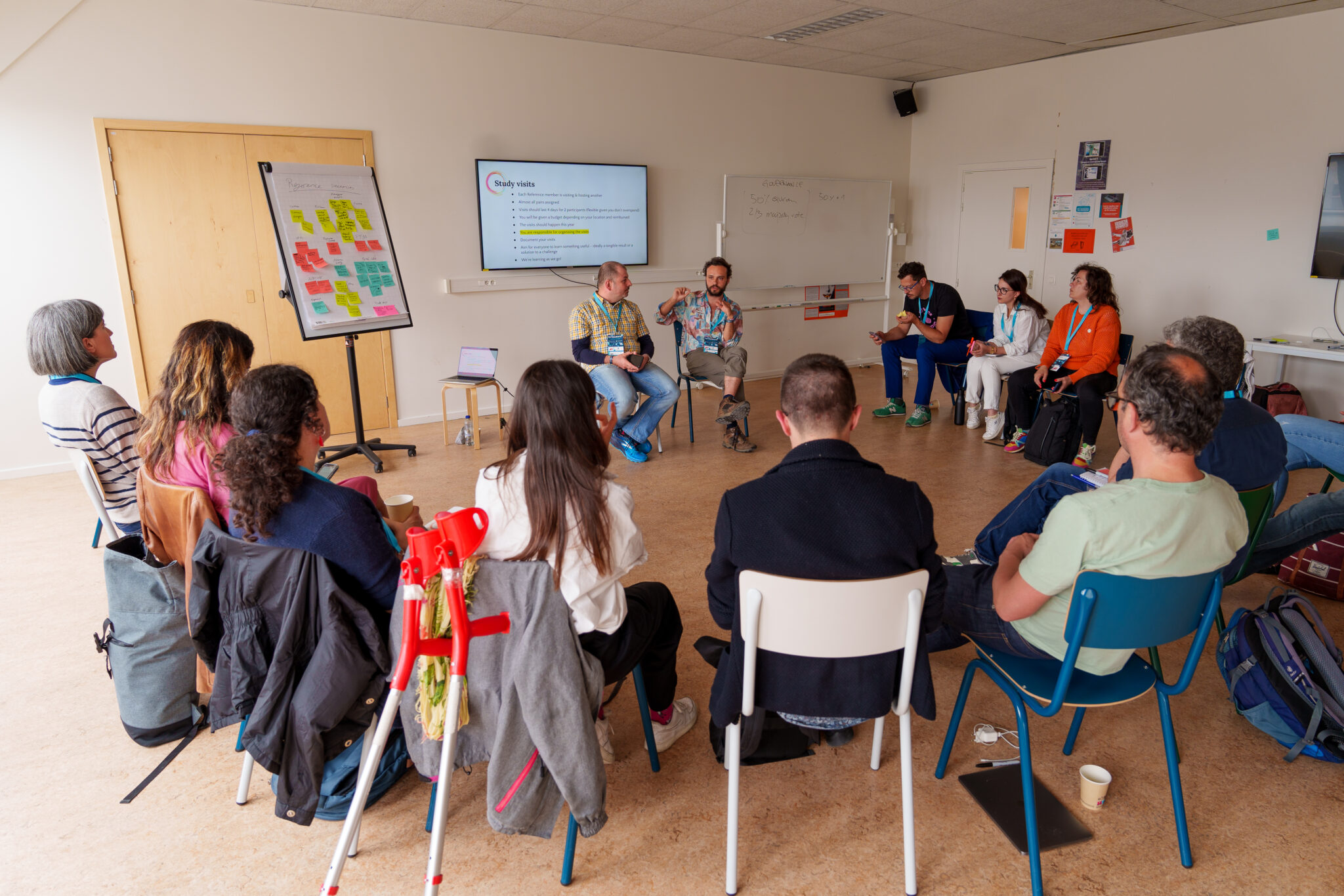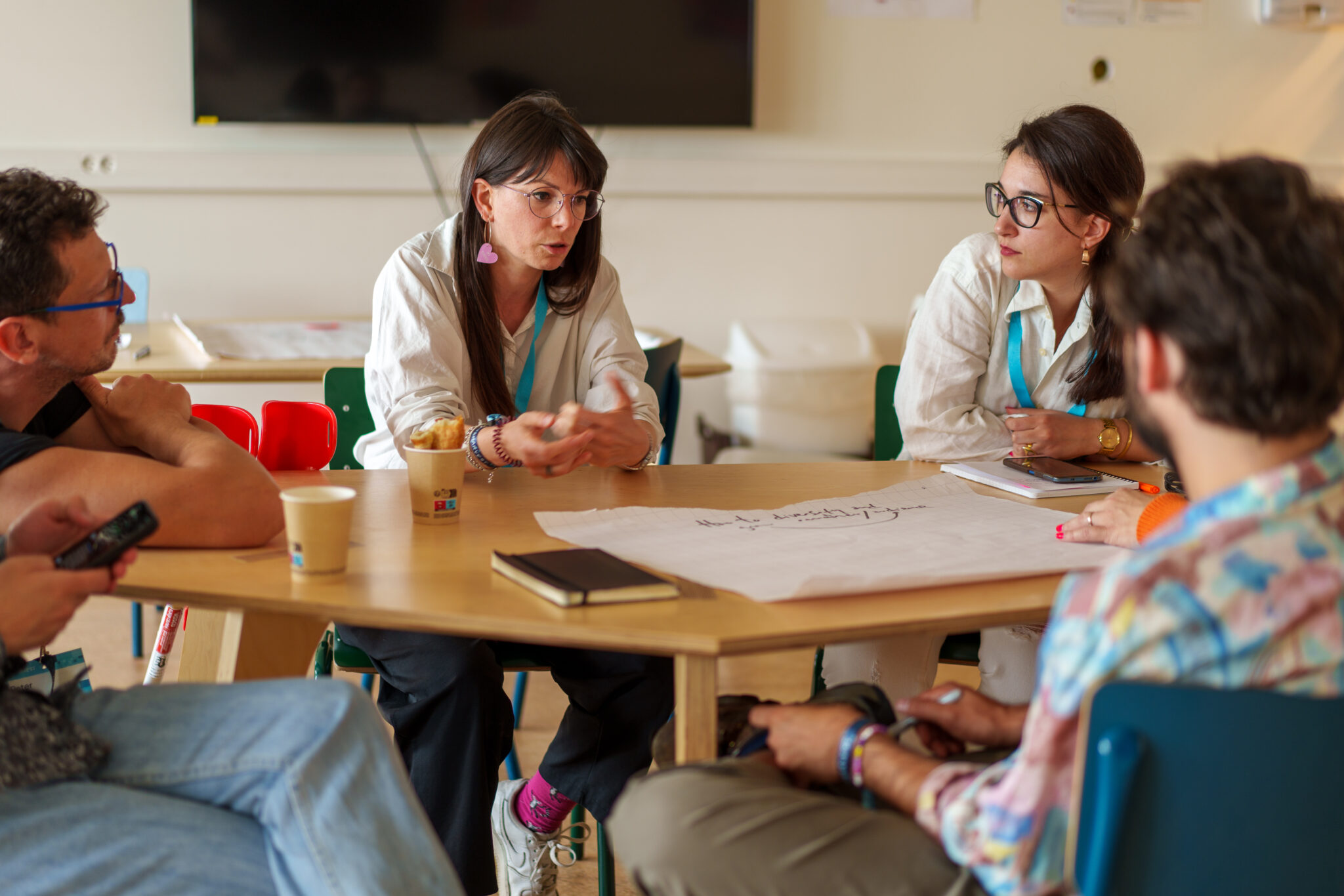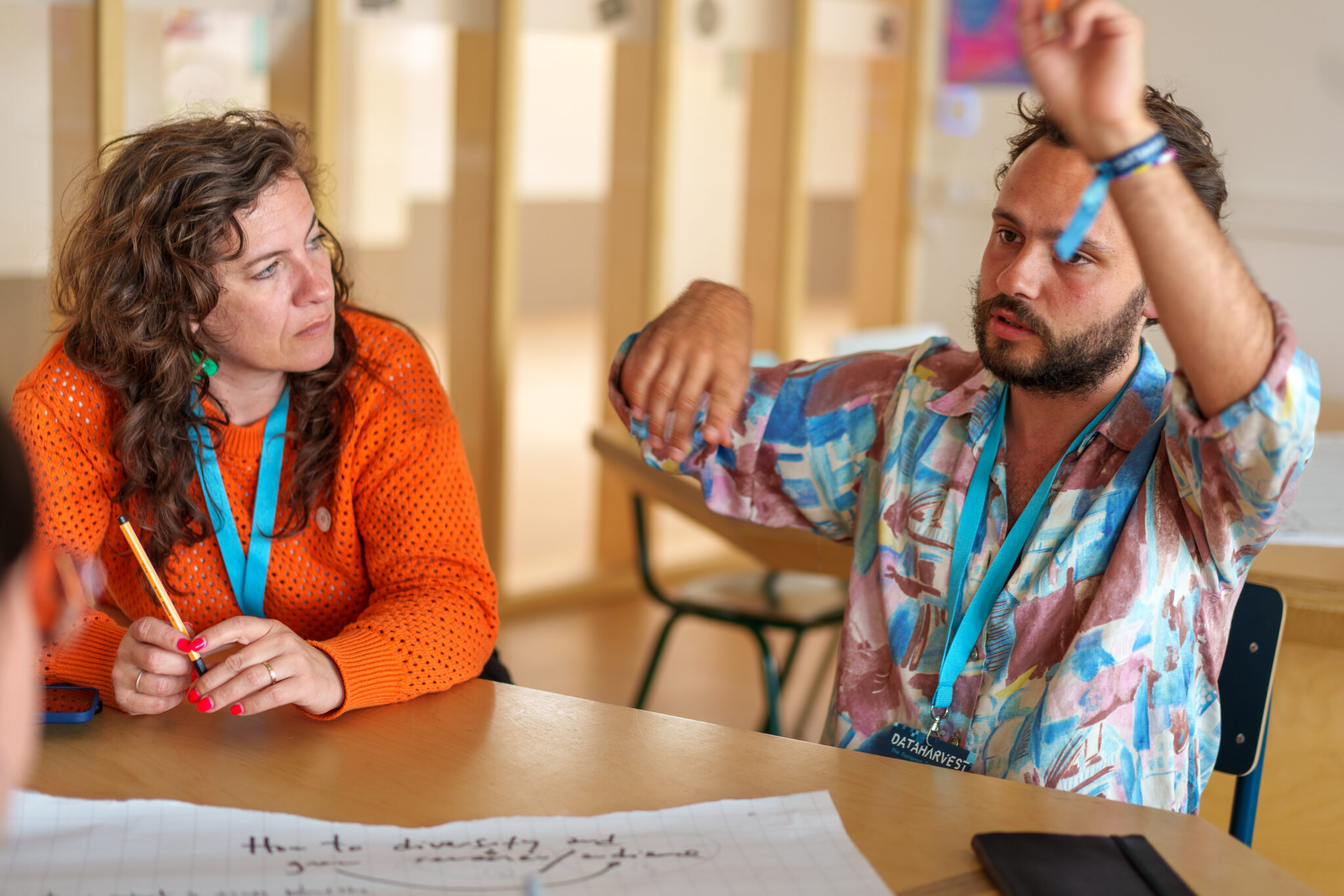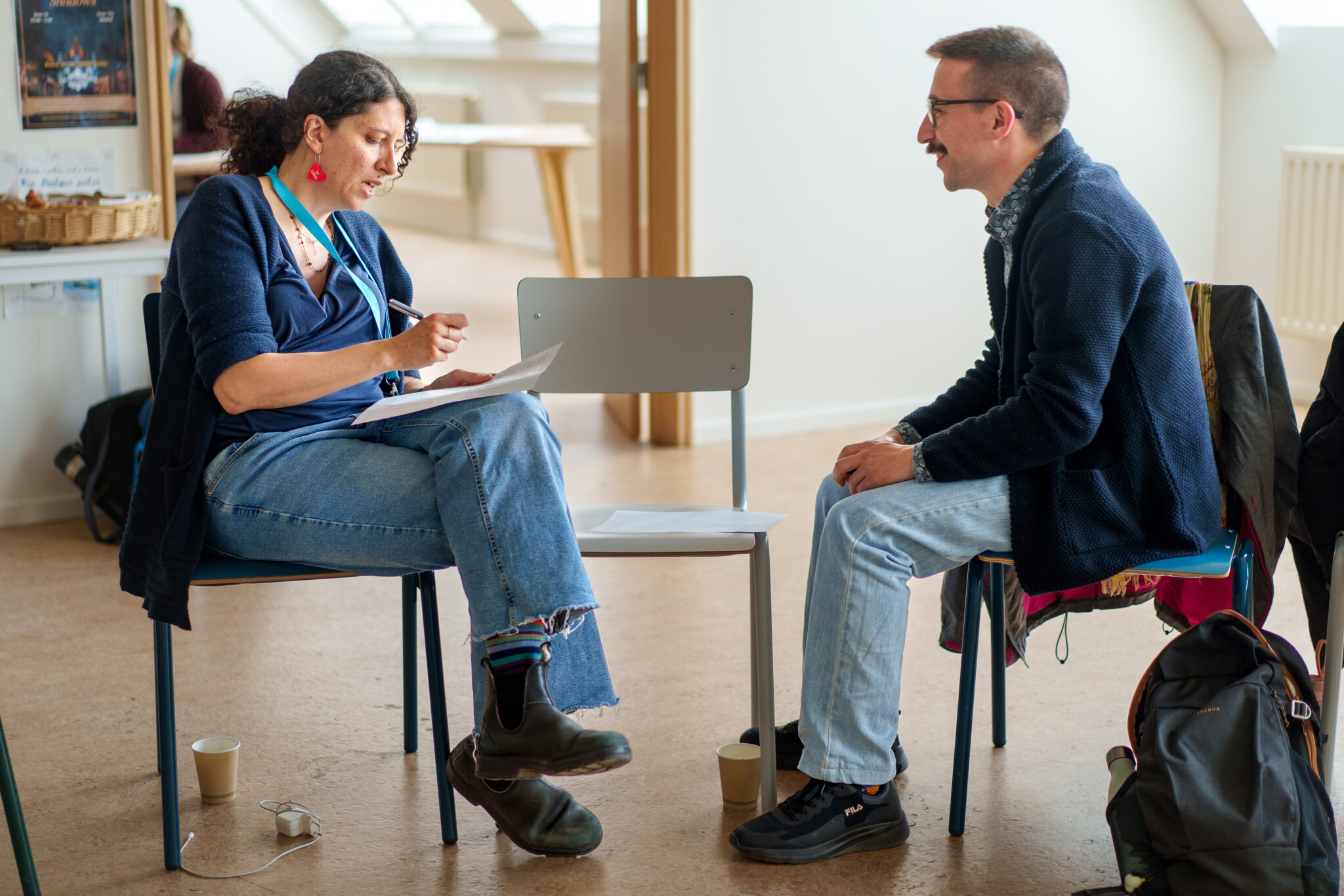We’ve been having a lot of valuable conversations recently, both inside the network and outside of it.
Some key questions at the centre of the Journalism Value Project are What is the value of independent public interest journalism? and How can it be better supported? Answers to these might be obvious to those working in the space: incredibly important to communities and democracies, and it needs proper funding. But looking at the sustainability challenges for the sector, this received wisdom clearly isn’t always joined up with the reality. So we’ve been hosting conversations to see how we can change this.
We’ve also been having important conversations within Reference, about how the network should develop, and how we should get there. And like our newsrooms experience, there is often a sense of immediate need and urgency to develop, which needs to be balanced with the competing need of growing with resilience towards a clearly set direction. We decided to give ourselves more time to build our ship and set our course to ensure we develop Reference to be the organisation the sector needs.

The Journalism Value Project aims to advance the research, practice and debate about the value of independent journalism to society in Europe. As part of advancing the debate, we are consulting with a wide range of stakeholders in order to better understand and articulate the value of journalism, and how it can be better supported.
The first stakeholders we’ve engaged with are an obvious place to start: journalists and funders. Over the past few months we’ve hosted two meetings to get their views and push forward the conversation about how public interest media can be better supported.
Meeting with funders in Perugia
We met in Perugia during the International Journalism Festival with international, European, and national funders. For the first time, we brought Italian funders together – thanks to Assifero, the National Association of Italian Foundations – to kick off a national conversation on the needs and challenges in supporting public interest journalism. Moderated by Sameer Padania, foundations from all over Europe shared experiences and helped push forward the debate on how to better support independent media.
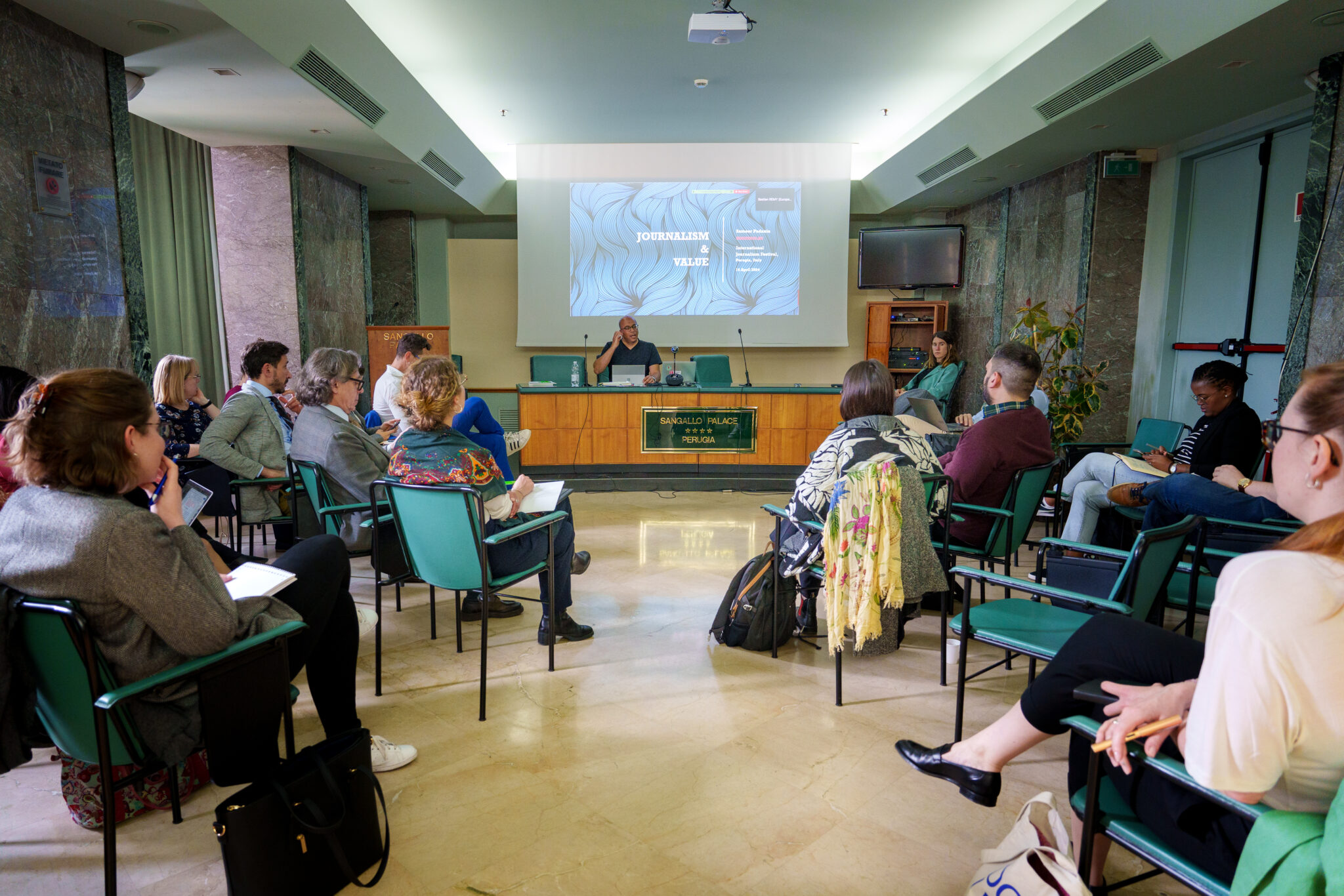
Conversations at Dataharvest
At Dataharvest – the European Investigative Journalism Conference, we held a session with journalists, newsroom leaders, and anyone interested in a thriving independent media sector. In a participatory session, we brainstormed on the challenges independent media faces, its value, and solutions for helping the sector to become more sustainable. We heard from participants on the funding and operational challenges which newsrooms across Europe are facing, and the desire for journalism to have greater impact in an increasingly polarised and complex environment.
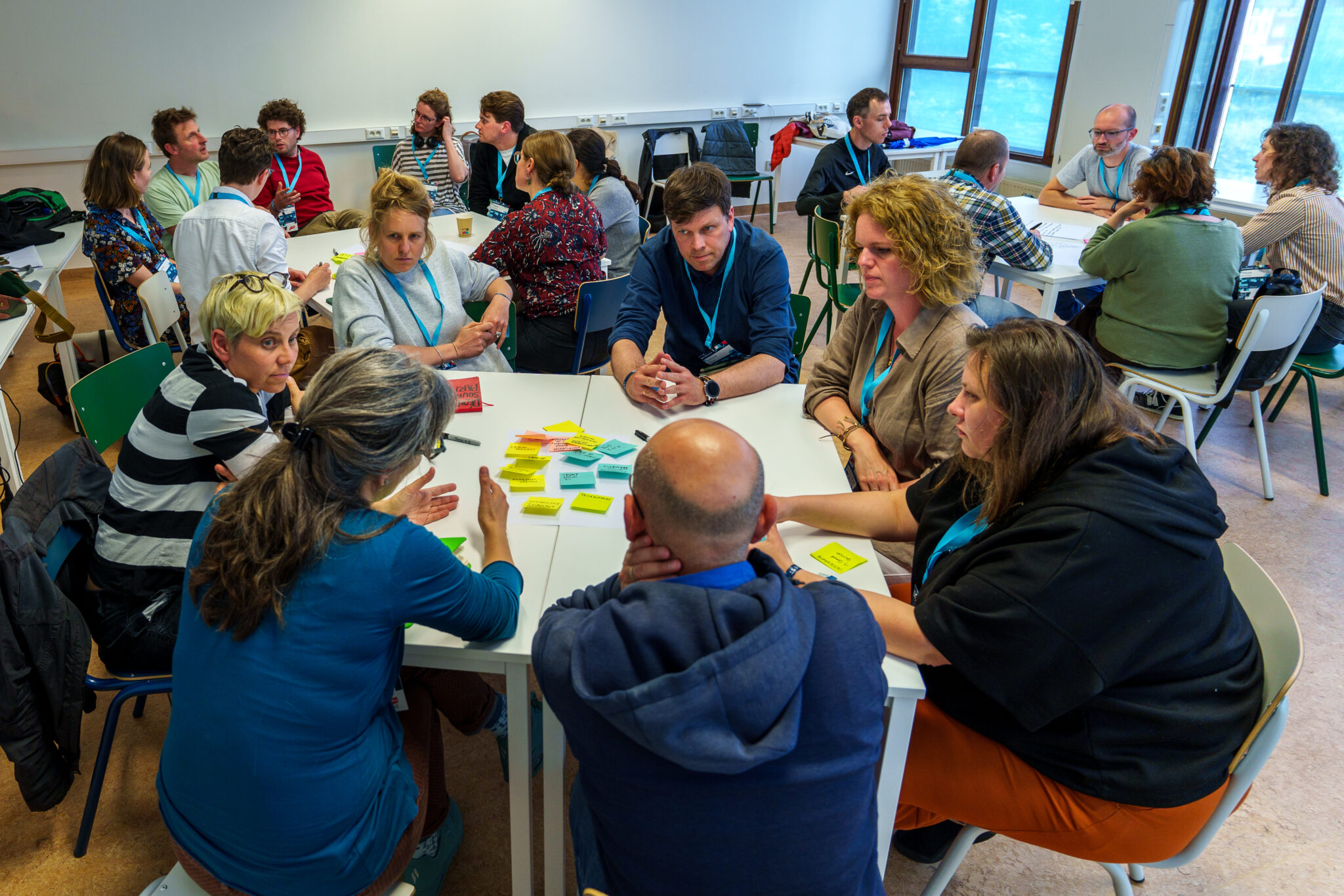
Here are some of the highlights from what participants shared on the value of public interest media:
- It holds power to account, informs civic engagement and political participation, and helps with social cohesion.
- Public service role: represents and covers stories from communities otherwise neglected by commercial media.
- It serves as a platform for experimentation and innovation!
- Fights dis- and mis-information.
- Serves as a bridge between politics and citizens, and translates complex issues to readers.
- Increases diversity in the media ecosystem
A big thank you to everyone who took part in the sessions! We know there is no perfect solution to all the challenges we are facing, but we also heard interesting opportunities such as advocating for more supportive policies from tax, to NGOs, and engaging with new and local foundations.
We are planning more conversations later this and next year, with stakeholders including social investors, research organisations, and policy makers. The outcomes of these will be reflected in a White Paper which will be published in 2025, and will gather all your perspectives in this process, with the aim to increase financial support to public interest media in Europe.
Who do you think we should be talking to as part of this process? Do not hesitate to share your thoughts with Elisa Juega, from Investigate Europe. juega@investigate-europe.eu
Reference Spring meeting
Our network of independent media leaders gathered for our annual Spring meeting just before Dataharvest, in Mechelen, Belgium. This is always an important space to connect, share knowledge, and develop the network, and this time was no different.
As a self-organising network, now 2.5 years old, we needed to take stock of where we were at, where we want to go, and how we will get there. When we founded the network together, we had the initial aim of spinning off from our host organisation Arena for Journalism and becoming an independent organisation in 2025. But now in 2024, we realise this is a hugely ambitious aim, and there is still a lot more we needed to do to be ready for that: from deciding the strategy for our network, our focus and how large we grow, to further building our internal structures, processes, and capacity. So our first decision was to delay the planned spin-off until we decided a new timeline, which gives us much needed more time to develop the network.
We also made some big decisions, such as.. how we make decisions! With an updated and clarified decision-making process for both big governance and more everyday decisions. We also clarified the mandate and responsibilities of our member board the G5. As a self-organising network, developing the internal infrastructure such as our internal governance processes are crucial developments to enable us to be both agile and democratic.
Over the coming period the G5 will lead a working group to develop our network’s strategy, and with members, they will shape the direction of our network, by and for independent media.
In Mechelen we also took time to share member successes from the last year, from the inspirational impact of Correctiv’s investigation into the AfD which led to nationwide demonstrations, to IRPI and Follow the Money launching membership programmes (FTM for the first time in English), organisations defeating SLAPP suits, managing leadership transitions, and launching new editorial products. Their collective ambition and impact is nothing short of inspiring.
Over the next year, members will have the opportunity to turn this inspiration into concrete results, as each member will visit and host another member to share advice, experience, and collaborate. More on that coming over the next few months!
The Journalism Value Loop Podcast
Speaking of valuable conversations: we’ve been interviewing members of Reference about how they were founded, their journeys and how they’ve overcome major challenges. Check out the Loop, our podcast series.
Here are some of the most recent episodes:
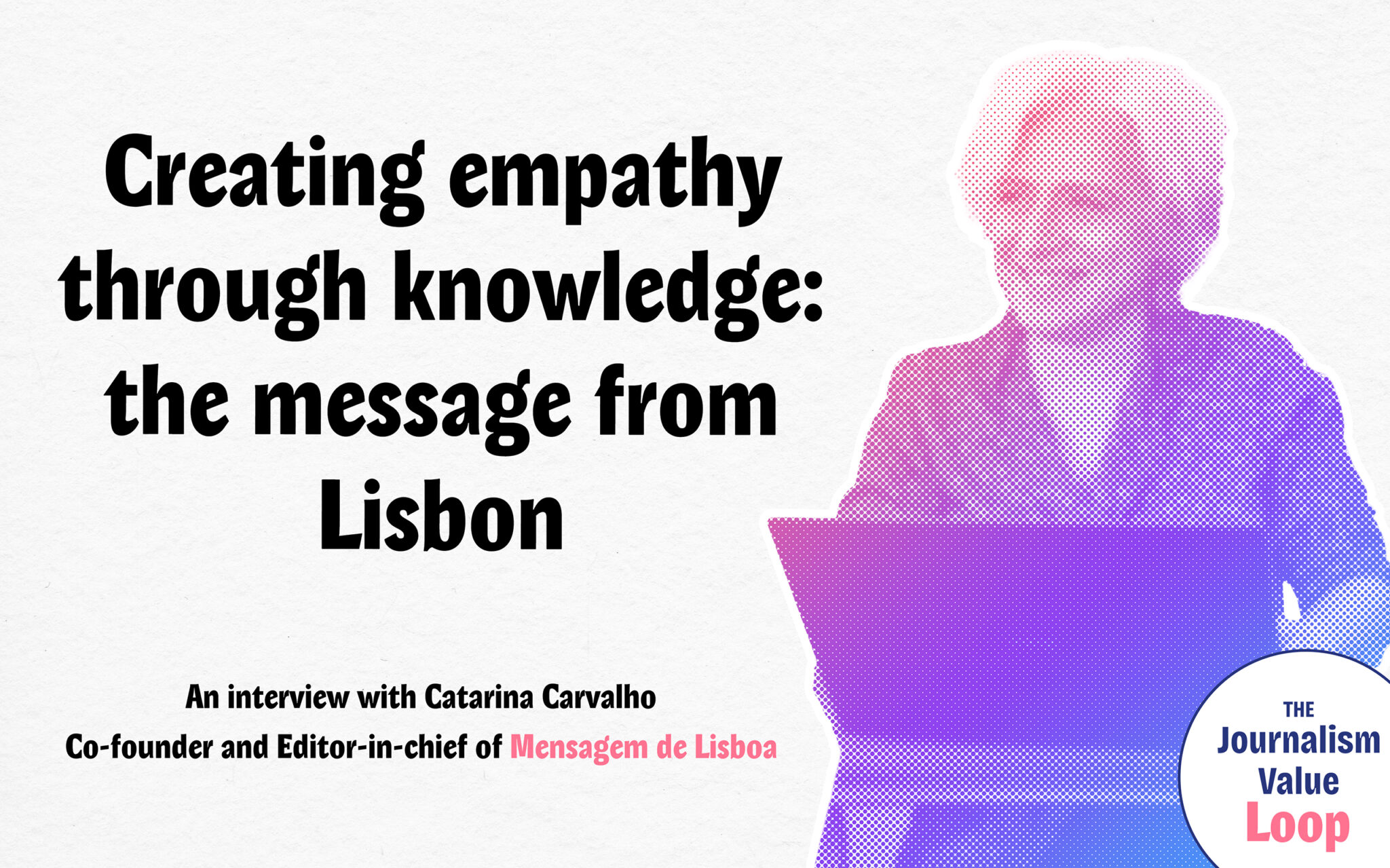
Mensagem de Lisboa is a community-focused newsroom based in the heart of Lisbon, Portugal. We spoke to Co-founder and Editor-in-Chief Catarina Carvalho about how the project came about, and the values they carry in their approach to telling the stories of Lisbon. Listen here
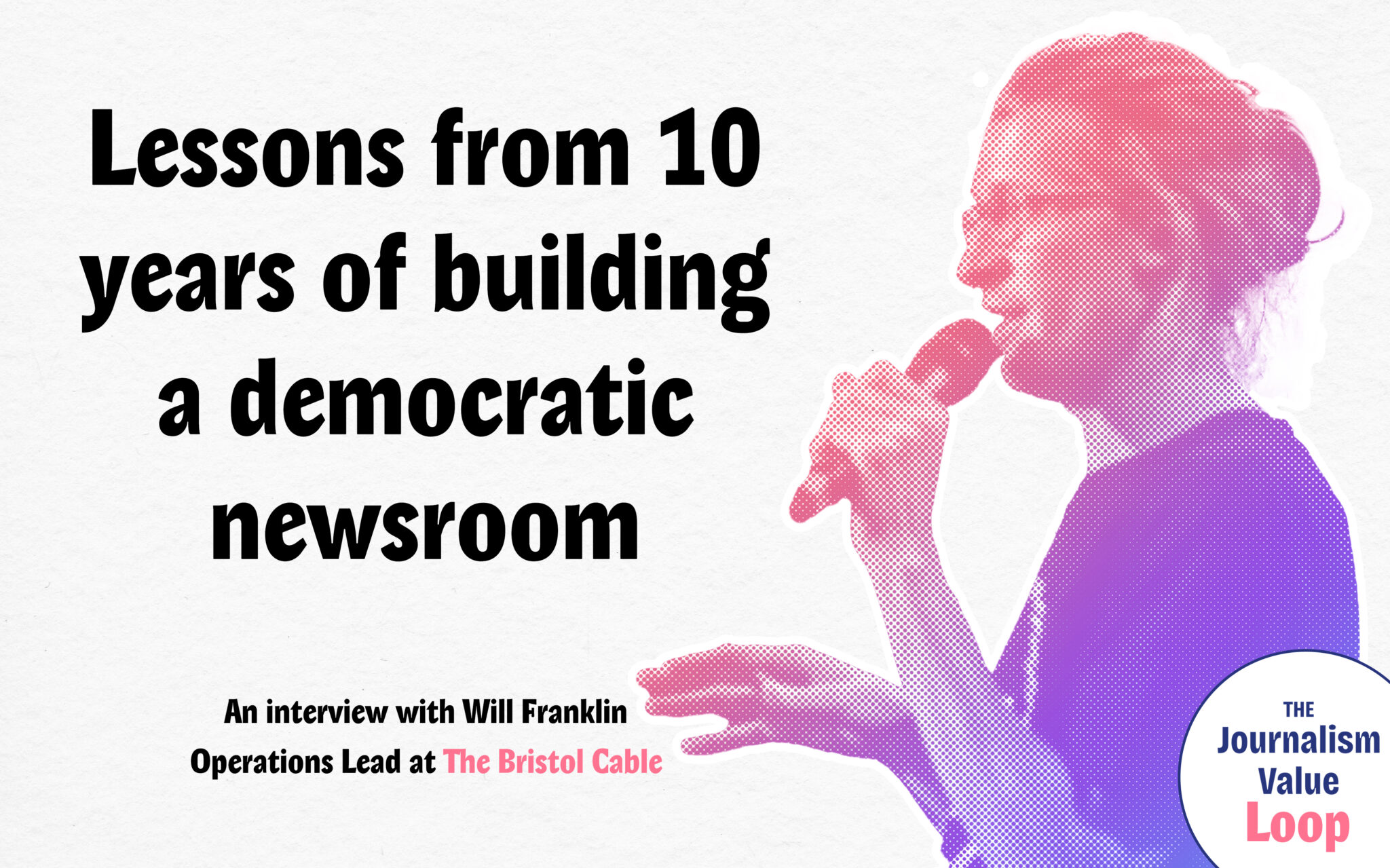
The Bristol Cable is community-owned cooperative newspaper based in Bristol, UK. We spoke to Operations Lead Will Franklin about how the organisation has evolved over its 10 years, while staying democratic and member-led. Listen here
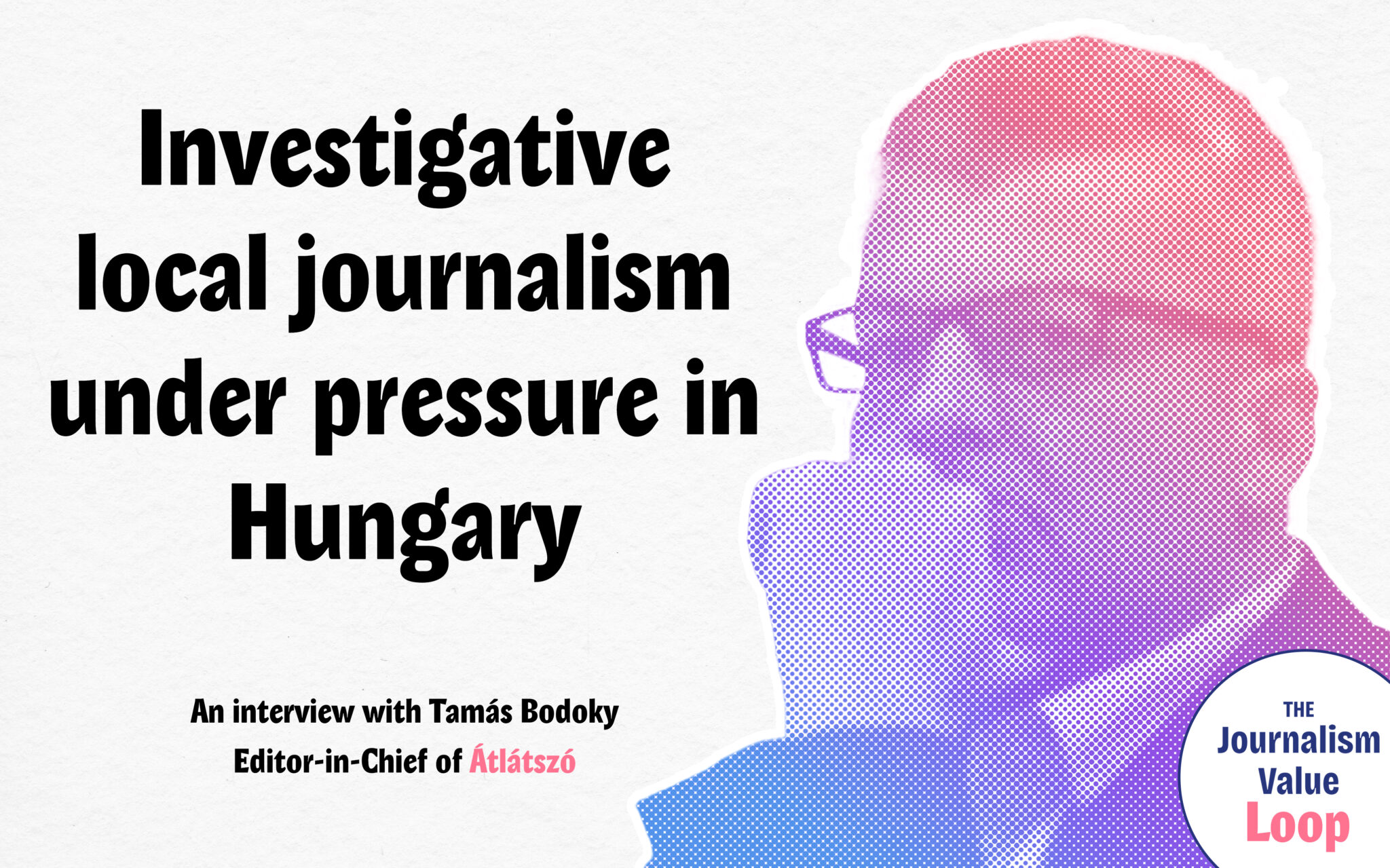
Átlátszó is the first Hungarian investigative journalism non-profit and watchdog NGO set up to promote transparency, accountability and freedom of information in Hungary. We spoke to the Editor-in-Chief Tamás Bodoky about how they are able to do and sustainable their investigative journalism in an increasingly hostile political environment. Listen here
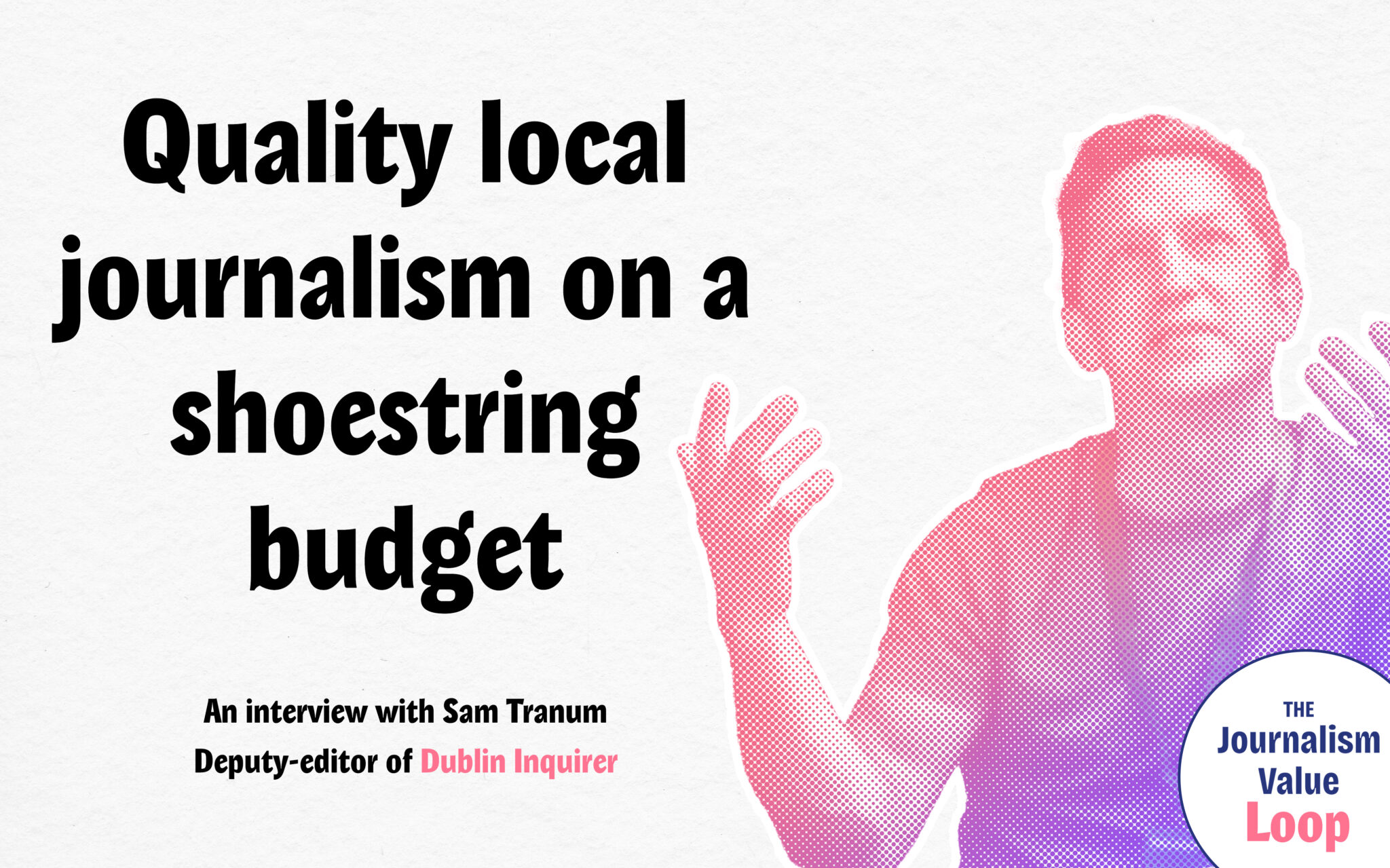
The Dublin Inquirer is an independent, reader-supported local newspaper based in Dublin, Ireland, 95% funded by subscriptions. We spoke to Sam Tranum, Deputy Editor and co-founder about how they go going, their challenges with growth, and how the involve communities in their reporting. Listen here
